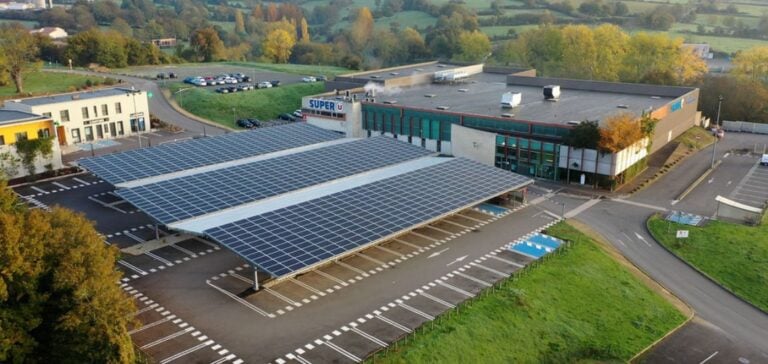More than a year after the publication of the APER law, which aims to accelerate the production of renewable energies, the implementing decrees have still not been published. The retail sector, through Perifem, the Fédération de la Consommation et de la Distribution (FCD), and FACT, is criticizing the delay and the short implementation timetable for the mandatory installation ofphotovoltaic shading on the parking lots of 21,000 stores and shopping centers.
Production and deadline constraints
Industry representatives point out that, although the first French photovoltaic panel factories are under construction, production will not start before 2025. They question the feasibility of covering 70 million square meters of parking lots by 2028, as required by law.
Proposed amendments to the law
To overcome these difficulties, the three organizations are proposing to extend the installation period for photovoltaic shading systems by a minimum of two years. They also recommend revising the definition of the surface area to be covered, suggesting limiting the obligation to only half of the parking spaces, excluding driveways, so as not to immobilize the land surface of parking lots for more than 20 years.
Environmental and economic considerations
The major chains also warn that the legal obligation could lead to the removal of existing vegetation, thereby damaging the local environment. They advocate an approach that balances sustainable development with the economic impact on businesses.
So, while France aims to increase its solar energy production capacity tenfold by 2050, the retail sector is calling for regulatory adjustments to ensure an energy transition that is both practical and economically viable.






















